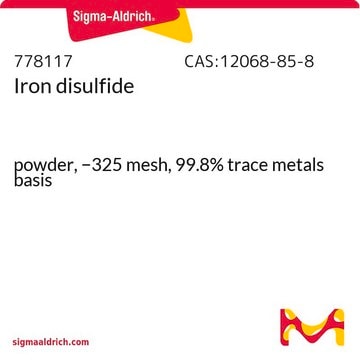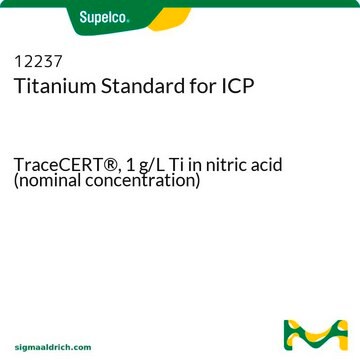01713
Cryolite
synthetic, ≥97.0% (from F)
Synonym(s):
Kryolith, Sodium hexafluoroaluminate
About This Item
Recommended Products
Quality Level
Assay
≥97.0% (from F)
form
powder
quality
synthetic
reaction suitability
core: aluminum
reagent type: catalyst
impurities
≤0.5% silicic acid (as SiO2)
loss
≤0.5% loss on drying, 105 °C
cation traces
Fe: ≤500 mg/kg
storage temp.
2-30°C
SMILES string
[Na+].[Na+].[Na+].F[Al-3](F)(F)(F)(F)F
InChI
1S/Al.6FH.3Na/h;6*1H;;;/q+3;;;;;;;3*+1/p-6
InChI key
REHXRBDMVPYGJX-UHFFFAOYSA-H
Looking for similar products? Visit Product Comparison Guide
Related Categories
Application
Signal Word
Danger
Hazard Statements
Precautionary Statements
Hazard Classifications
Acute Tox. 4 Inhalation - Aquatic Chronic 2 - STOT RE 1
Storage Class Code
6.1C - Combustible acute toxic Cat.3 / toxic compounds or compounds which causing chronic effects
WGK
WGK 3
Flash Point(F)
Not applicable
Flash Point(C)
Not applicable
Personal Protective Equipment
Choose from one of the most recent versions:
Already Own This Product?
Find documentation for the products that you have recently purchased in the Document Library.
Our team of scientists has experience in all areas of research including Life Science, Material Science, Chemical Synthesis, Chromatography, Analytical and many others.
Contact Technical Service









